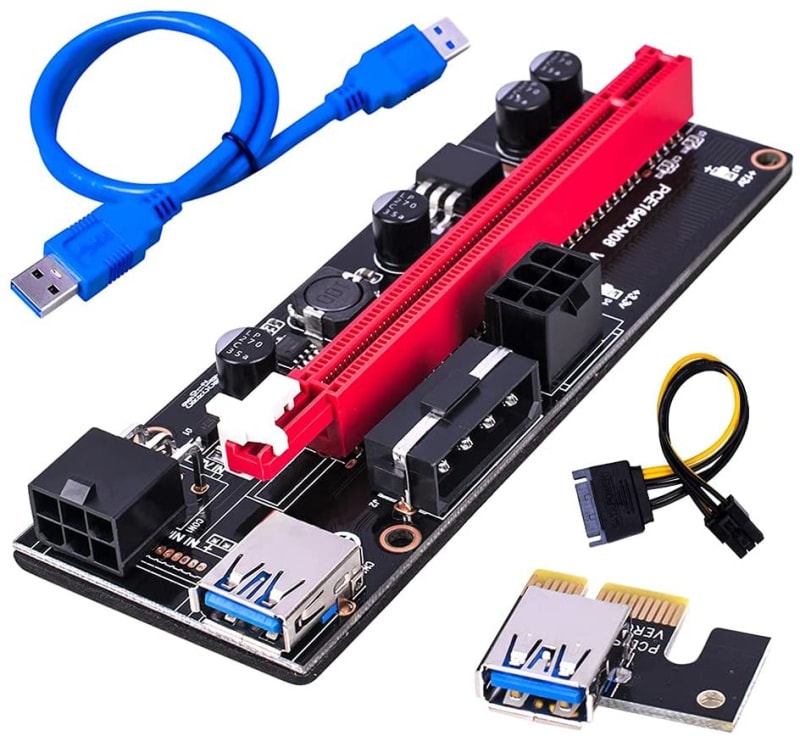daxliniere
Electrical
- Aug 7, 2021
- 4
Hey gang,
I have tested two different brands of PCI-e riser boards with an audio DSP card containing 8x SHARC 21469 ICs. Both of the risers seem to work perfectly, but their capacitors get too hot to touch within about a minute.
The max current draw for that card is allegedly 8W, which seems to check out reading the Analog Devices datasheets. These are the kinds of cards that are used in cryptocurrency mining, so they normally have a whopping big GPU card plugged into them, not a little 8W DSP card. The risers have a 12V ATX connector (6-pin) for power input and send the data signals across a USB3 cable (not USB3 protocol, of course) to a dummy card that plugs into the motherboard's PCI-e slot. One of the riser cards I've tested has 4 SMD caps the other has 8 caps (4x2 in parallel).
My questions are:
1) Why would this be happening?
2) What could I do to mitigate it? I'm happy to change or add caps.
Thanks in advance to anyone who can shed some light on this strangeness.
All the best,
Dax.

I have tested two different brands of PCI-e riser boards with an audio DSP card containing 8x SHARC 21469 ICs. Both of the risers seem to work perfectly, but their capacitors get too hot to touch within about a minute.
The max current draw for that card is allegedly 8W, which seems to check out reading the Analog Devices datasheets. These are the kinds of cards that are used in cryptocurrency mining, so they normally have a whopping big GPU card plugged into them, not a little 8W DSP card. The risers have a 12V ATX connector (6-pin) for power input and send the data signals across a USB3 cable (not USB3 protocol, of course) to a dummy card that plugs into the motherboard's PCI-e slot. One of the riser cards I've tested has 4 SMD caps the other has 8 caps (4x2 in parallel).
My questions are:
1) Why would this be happening?
2) What could I do to mitigate it? I'm happy to change or add caps.
Thanks in advance to anyone who can shed some light on this strangeness.
All the best,
Dax.


